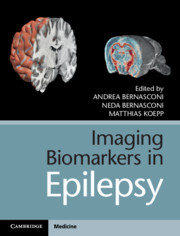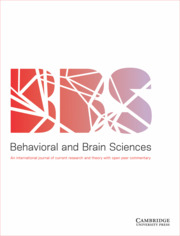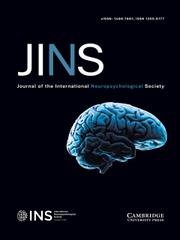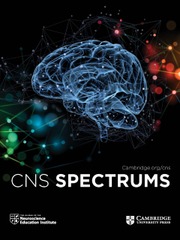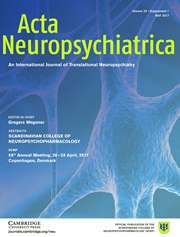Imaging Biomarkers in Epilepsy
$195.00 (P)
- Editors:
- Andrea Bernasconi, Montreal Neurological Institute, McGill University
- Neda Bernasconi, Montreal Neurological Institute, McGill University
- Matthias Koepp, Institute of Neurology, University College London
- Date Published: February 2019
- availability: Available
- format: Hardback
- isbn: 9781107108356
$
195.00
(P)
Hardback
Other available formats:
eBook
Looking for an examination copy?
If you are interested in the title for your course we can consider offering an examination copy. To register your interest please contact collegesales@cambridge.org providing details of the course you are teaching.
-
Epilepsy is a prevalent and serious neurological disorder. This vital textbook addresses the role of neuroimaging as a unique tool to provide in vivo biomarkers aimed at furthering our understanding of causes and consequences of epilepsy in a day-to-day clinical context. Unique in its approach, this translational book presents a critical appraisal of advanced pre-clinical biomarkers that allows capturing epileptogenesis at molecular, cellular, and neuronal system levels. The book is divided into four sections. Part I includes a series of chapters focused on imaging of early disease stages. Part II discusses lesion detection and network analysis methods. Part III focuses on imaging methods used to predict response to antiepileptic drugs and surgery. Finally, Part IV presents imaging techniques used to evaluate disease consequence.
Read more- Places emphasis on clinical relevance and applications throughout, with a dedicated final section in each chapter
- Provides a wide-ranging focus including neuroimaging in paediatric and adult patients, and epilepsy surgery, relevant to all practitioners
- Situated in real-life context, addressing practical applications on the causes and consequences of epilepsy at molecular, cellular, and neuronal system levels
Customer reviews
Not yet reviewed
Be the first to review
Review was not posted due to profanity
×Product details
- Date Published: February 2019
- format: Hardback
- isbn: 9781107108356
- length: 258 pages
- dimensions: 254 x 194 x 15 mm
- weight: 0.77kg
- contains: 11 b/w illus. 64 colour illus.
- availability: Available
Table of Contents
Preface
Dedication
Part I. Imaging the Development and Early Phase of the Disease:
1. Imaging biomarkers for febrile status epilepticus and other forms of convulsive status epilepticus Rodney Scott
2. Experimental MRI approaches to study post-traumatic epilepsy Olli Gröhn and Alejandra Sierra
3. Imaging biomarkers of acquired epilepsies Marian Galovic and Matthias Koepp
4. Imaging and cognition in children with new onset epilepsies Kevin Dabbs, Camille Garcia-Ramos, Darren Jackson, Jack Lin, Sam Bobholz, Dace Almane, Jana Jones, Mike Seidenberg and Bruce Hermann
5. Imaging genetics for benign mesial temporal lobe epilepsy Antonio Gambardella and Angelo Labate
Part II. Modeling Epileptogenic Lesions and Mapping Networks:
6. Computational neuroimaging of epilepsy Seok-Jun Hong, Min Liu, Ravnoor Gill, Edward Hogan, Neda Bernasconi, Andrea Bernasconi
7. Imaging white matter pathology in epilepsy Min Liu, Luis Concha, Boris C. Bernhardt, Neda Bernasconi and Andrea Bernasconi
8. Epilepsy network remodelling in epileptic disorders through neuroimaging Lorenzo Caciagli, Boris C. Bernhardt, Andrea Bernasconi and Neda Bernasconi
9. Mapping metabolism and inflammation in epilepsy Csaba Juhász and Sandeep Mittal
10. Inter-ictal and Ictal brain network changes in focal epilepsy Mangor Pedersen, Amir Omidvarnia and Graeme D. Jackson
11. Ictal events imaged through SPECT Elson L. So, Vlastimil Sulc, Gregory Worrell and Benjamin H. Brinkmann
12. Imaging thalamo-cortical circuitry in generalised epilepsies Fenglai Xiao and Lorenzo Caciagli
Part III. Predicting the Response to Therapeutic Interventions:
13. Prevention of epileptogenesis in animal models Asht Mangal Mishra and Hal Blumenfeld
14. Imaging of mechanisms of drug resistance in experimental models of epilepsy Jens P. Bankstahl and M. Bankstahl
15. Biomarkers of drug-response and pharmaco-resistance Britta Wandschneider, Maria Feldmann and Matthias Koepp
16. Predicting the outcome of surgical interventions for epilepsy using imaging biomarkers Clarissa Lin Yasuda, Ana Carolina Coan, Marina K. Alvim and Fernando Cendes
Part IV. Mapping Consequences of the Disease:
17. Imaging neural excitability and networks in genetic absence epilepsy models Grygoriy Tsenov, Giuseppe Bertini, Michele Pellitteri, Elena Nicolato, Pasquina Marzola, Paolo Francesco Fabene and Gilles van Luijtelaar
18. Network excitability and cognition in the developing brain William David Gaillard and Madison M. Berl
19. Imaging co-morbidities in epilepsy: depression William H. Theodore
20. Tracking epilepsy disease progression with neuroimaging Boris C. Bernhardt, Ana Carolina Coan, Lorenzo Caciagli, Andrea Bernasconi and Neda Bernasconi
21. Imaging biomarkers to study cognition in epilepsy Silvia B. Bonelli and John S. Duncan
Index.
Sorry, this resource is locked
Please register or sign in to request access. If you are having problems accessing these resources please email lecturers@cambridge.org
Register Sign in» Proceed
You are now leaving the Cambridge University Press website. Your eBook purchase and download will be completed by our partner www.ebooks.com. Please see the permission section of the www.ebooks.com catalogue page for details of the print & copy limits on our eBooks.
Continue ×Are you sure you want to delete your account?
This cannot be undone.
Thank you for your feedback which will help us improve our service.
If you requested a response, we will make sure to get back to you shortly.
×
